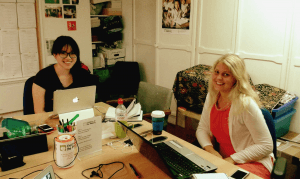Top Tips for Application Forms from Skills4Work Panellists
By UCL Careers, on 11 May 2018
Sally Brown – UCL Careers Advisor
 |
|
 |
On the 3rd October, UCL Careers welcomed four speakers from different companies to speak to students about their application processes and to offer some ‘top tips’ about completing application forms. What was clear was that although every company has their own way of shortlisting candidates, some specific annoyances regarding poor applications were common to all recruiters.
Online application forms
 All the panellists stated that their company asks you to fill in an online application form. They often ask for the same information that you will have on your CV – such as your academics and some personal details – but often in a format that suits the needs of the company. The representative from PwC was keen to highlight that due to the desire for social mobility, many companies (inc. PwC) do not ask for your work experience at this stage – understanding that some graduates may not have had the opportunity to undertake relevant or unpaid work experience/internships during their studies. So don’t worry if you feel your current work experience – such as bar work or retail – doesn’t directly relate to the industry you are applying to, they will be looking for a breadth of transferable skills they can build on.
All the panellists stated that their company asks you to fill in an online application form. They often ask for the same information that you will have on your CV – such as your academics and some personal details – but often in a format that suits the needs of the company. The representative from PwC was keen to highlight that due to the desire for social mobility, many companies (inc. PwC) do not ask for your work experience at this stage – understanding that some graduates may not have had the opportunity to undertake relevant or unpaid work experience/internships during their studies. So don’t worry if you feel your current work experience – such as bar work or retail – doesn’t directly relate to the industry you are applying to, they will be looking for a breadth of transferable skills they can build on.
Top tips from the panellists:
- Talk to people already doing the role you are interested in
- Check whether it is the right ‘fit’ for you through researching the role and company thoroughly before applying.
Online: Motivation and Competency questions
Online questions regarding candidates’ motivation to apply to the company, their industry knowledge and basic common competencies (such as team-work) were common amongst the companies represented. It was also common that some candidates offered generalised responses that could be applied to any of their competitors.
Top tips from the panellists:
- Research! Research the role as well as the organisation.
- Take your time – allow 1-2 weeks to fill in the in the application.
- Research the industry to build up your commercial awareness – reflect upon how current issues may affect the company.
- A ‘real human’ will read this – all the panellists agreed that their companies do not use software to filter candidates.
Video Applications
 Yes the 21st century is here! Both the panellists from Unlocked and the Bank of England stated that they use video as part of the process. This is where you receive some written questions, get a few minutes to prepare your answer and then you are filmed saying your responses. These are reviewed later, as there is no one on the other side of the camera whilst you are speaking. The aim is to find out what you are like as a person and your communications skills.
Yes the 21st century is here! Both the panellists from Unlocked and the Bank of England stated that they use video as part of the process. This is where you receive some written questions, get a few minutes to prepare your answer and then you are filmed saying your responses. These are reviewed later, as there is no one on the other side of the camera whilst you are speaking. The aim is to find out what you are like as a person and your communications skills.
Top tips from the panellists:
- Check what else is in view of the camera e.g. remove the picture of you and your friends at a Halloween party, lock up the cat etc.
- Dress smartly
- Find a quiet place, but not too quiet that you are inclined to whisper.
- Try to look directly at the camera and not at the ‘thumbnail’ of you.
- It is acceptable to jot down key points during the preparation time and refer to the paper during your answer – but avoid reading from the notes like a script.
Online testing:
Two of the panellists – from PwC and The Bank of England – stated that their company uses some online testing that may include numerical, inductive (sometimes called logical reasoning) or verbal reasoning tests, work style preference questionnaire, or a personality test.
Top tips from the panellists:
- Don’t lie or second guess yourself on the latter two – they are there to help the company work out a ‘best fit’ for you regarding departments.
Five Top Tips for applications:
- Don’t copy and paste information off the website for your application.
- We know what we do – show us why it interests you and discuss how you would be a good asset.
- Take opportunities offered – reply to e-mails that offer you information, meetings or chats.
- Be specific to the firm you are applying to – show a genuine interest.
- Research! How can you show motivation about something you know little about?
 Close
Close










